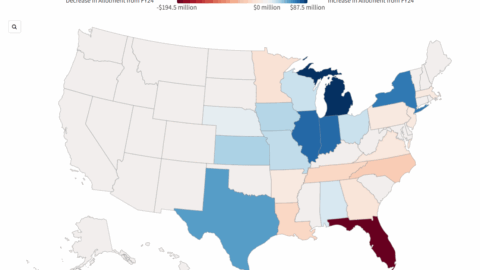Carts Before Horses: Vinyl Institute Calls For EPA To Evaluate Risk Without Data
What’s New?
Yesterday, (March 27), EDF—together with the National Wildlife Federation—filed a “friend of the court” brief in the case of Vinyl Institute v. EPA. We expressed our support for EPA’s authority to order companies to 1) Conduct health and safety studies for their chemicals and 2) Turn over those test data to EPA when the agency is evaluating risks the chemicals may pose to humans, wildlife, or the environment.
The Vinyl Institute, which lobbies for companies making vinyl chloride and other chemicals used to make PVC plastic, disagrees. It brought a case against EPA on behalf of its members, asking the U.S. Court of Appeals in Washington, DC, to overturn EPA’s order to test 1,1,2-trichloroethane—a chemical known to harm living beings.
Why It Matters
This case could affect EPA’s ability to order companies to conduct health and safety studies for their chemicals, and, by extension, the agency’s ability to regulate those chemicals. Our brief to the court examines the history that led Congress to grant EPA authority to issue test orders and explains why it is critical for EPA to retain this authority.
The Backstory
The Toxic Substances Control Act (TSCA), the nation’s primary chemical law, was first enacted in 1976. For decades afterwards, EPA managed to collect test data for only a few chemicals; in some years, EPA collected no test data from companies at all.
The original TSCA law required EPA to go through lengthy procedures and make risk determinations about a chemical before it could seek any data from companies. Members of Congress recognized this was a no-win position for EPA and tried for many years to change the law. In 2016, Congress enacted major bipartisan reforms to TSCA, giving EPA power to order companies to test their chemicals when the agency needs data to complete risk evaluations of those substances. This change was lauded by members of Congress and many others as one of the most important improvements to TSCA.
The Current Case
EPA has designated 1,1,2-trichloroethane as a “high priority” for risk evaluation and possible regulation under TSCA. The agency issued the test order because it has some data indicating that the chemical is toxic to birds—but EPA needs more information on just how toxic it is to understand the risks. The Vinyl Institute essentially argued that EPA should have shown the risk to birds before it issued a test order—a classic case of putting the cart before the horse.
On behalf of several multibillion-dollar companies, which produce vinyl chloride and are part of the case, the Vinyl Institute also complained about the cost of the test.
What’s Next?
The court will review the briefs and issue a decision. In the meantime, chemical companies are challenging other EPA testing orders in court, and we are keeping a close eye on those cases. We will continue supporting EPA’s ability to exercise the authority Congress gave it–along with the ability to gather the information it needs to understand how chemicals pose risks to us and the environment and it can take the actions necessary to protect us.
Go Deeper
Read the briefs for the case Vinyl Institute v. EPA:













